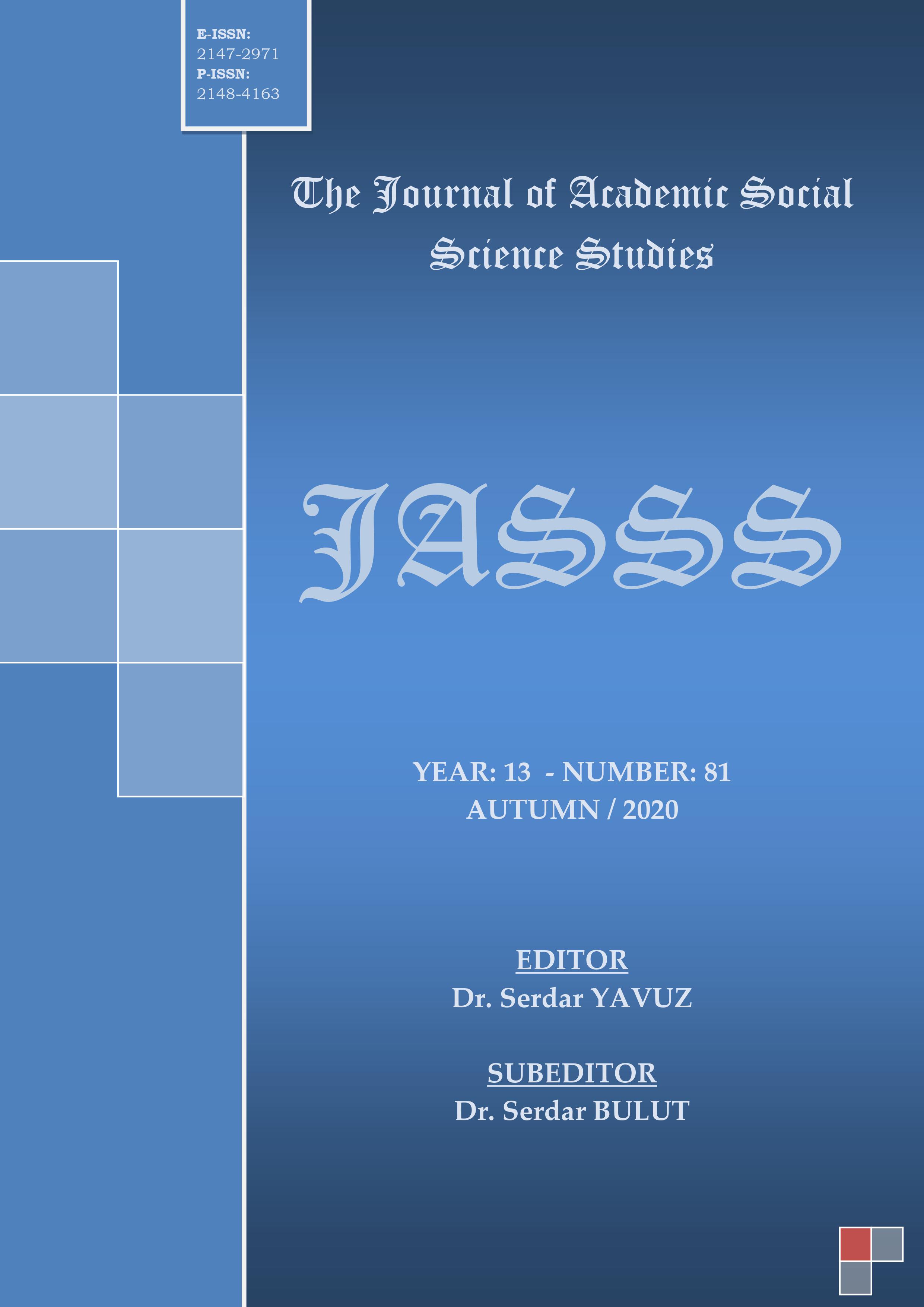Author :
Abstract
Dilin doğasını kavramsal olarak araştıran bir disiplin olan dil felsefesi, çeşitli anlamları analiz eder, anlam ile ilgilenir, ve dilin nasıl oluştuğunu açıklar. Bunun dışında, dil felsefesi dil gerçekliği, dil ve iletişim arasındaki ilişkiyi açıklar. Dil felsefesi 20. yüzyılın başından itibaren felsefenin ana alanı olmuştur. Felsefe tarihi boyunca çoğu filozof, dil ve dil problemleriyle ilgilenmiştir. Bu doğrultuda erken dönemlerden yirminci yüzyıla kadar dil hakkındaki temel görüşler, filozofların bakış açılarına göre yorumlanmıştır. Bu makale, (bazılarına göre) 20. yüzyılın en büyük filozoflarından biri olarak kabul edilen Wittgenstein'ın felsefedeki en canlı ve en zorlu çalışma alanlarından biri olan Wittgenstein'ın Tracatus Logico Philosophilus dönemi ve sonraki Felsefi Soruşturmalar adlı çalışmalarına önemli bir kılavuzluk yaparak 20'nci yüzyıl analitik felsefesinde önemli bir rol oynamıştır. Wittgenstein’ın kabul edilen iki felsefe dönemi bulunmaktadır – ilk dönem ve sonraki dönem. Öte yandan, eserlerinin zorluğundan dolayı çok az anlaşılmıştır. Bununla birlikte, daha çok Felsefi Soruşturmalar'da bilinen daha sonraki Wittgenstein'dır. Tractatus adlı eserde felsefi sorunlar dil mantığının yanlış anlaşılmasından kaynaklanır ve Wittgenstein bu eserde bu mantığın ne olduğunu göstermeye çalışır. Ancak Wittgenstein’ın daha sonraki çalışmalarında bu kaygıyı mantık ve dil ile sağlamaktadır. Wittgenstein dil oyunlarıyla, o dönemin mantıksal olguculuk açısından dil görüşüne karşı çıkar. Bu makale, Wittgenstein'ın çeşitli yaklaşımlarına tematik bir genel bakış sunarak, iki dönem arasındaki dil felsefesinin temelleri hakkında açıklayıcı bir bilgi vermeye çalışmaktadır.
Keywords
Abstract
Language philosophy which is a discipline that investigates the nature of language conceptually, analyzes various meanings, deals with meaning, explaining how it is formed, explains the relation between language, language reality and language-communication. It has been the main field of philosophy since the beginning of the 20th century. In the course of history of philosophy, most philosophers have been concerned with the issue of language and language problems. Thus the fundamental views on language from the early periods into twenty first century has been grounded by the perspectives of prominent philosophers. This paper focuses on studies of Wittgenstein, who is considered (by some) to be one of the greatest philosophers of the 20th century, played a significant role in 20th-century analytic philosophy, providing an important guide to one of the liveliest and most challenging areas of study in philosophy between the works of Wittgenstein’s first period of Tracatus Logico Philosophilus and the second period of Philosophical Investigations. There were two recognized periods of Wittgenstein’s thought—the early and the later. On the other hand, due to the difficulty of his works, he is not well understood. However, it is the later Wittgenstein, mostly known in the Philosophical Investigations. In the Tractatus philosophical problems arise from misunderstandings of the logic of language, and he tries to illustrate what this logic is. However, in Wittgenstein’s later work, he provides this concern with logic and language. With his language-games, he seems to go against the logical positivist's view of language of that period. This paper attempts to give an expository information on the fundamentals of philosophy of language between the two periods, outlining a thematic overview of the various approaches of Wittgenstein.
Keywords
- Abne M. E. (2015). Profile of an Iconoclast. Florida: Trafford Publishing.
- Abne M. E. (2015). Profile of an Iconoclast. Florida: Trafford Publishing.Altınörs, A. (2003). Dil Felsefesine Giriş. İstanbul: İnkılap Kitabevi.
- Brown, R. (1968). The Psychology of Language and Communication. New York: Guilford Press.Bruner, J. S. (1975). Toward a Theory of Instruction. Harvard University Press: United States. Chomsky, N. (1975) Reflections on Language Pantheon Books. New York.
- Halliday, M. A. K. and Webster, J. (2003). On language and linguistics. London: New York: Bloomsbury Publishing.
- İnan, İ. (2013).Dil Felsefesi. Eskişehir: T.C. Anadolu Üniversitesi Yayınları.
- Jespersen, O. (1922). Language: Its Nature, Development and Origin. London: George Allen & Unwin.Kula, O. B. (2012). Dil Felsefesi Edebiyat Kuramı-I. İstanbul: Türkiye İş Bankası Kültür Yayınları.
- Lakoff, G. (1988). Cognitive Semantics. (Ed. Eco, U et al.). In Meaning and Mental Representations. USA: Indiana University Press.
- Lemonick, M. D. (1994). How Man Began. Time, 14(143), 80-87. Özcan, Z. (2014). Dil Felsefesi I. İstanbul: Sentez Yayıncılık.
- Piaget, J. (1969). The Mechanisms of Perception. New York: Basic Books.
- Robert H. R. and Crystal, D. (2019). Language, Encyclopædia Britannica, Inc. https://www.britannica.com/topic/language (Access Date: Aralık 16, 2019).
- Skinner B. F. (1957).Verbal Behavior. New York: Appleton-Century-Crofts.
- Slavkovsky, A. and Kutas, M. (2013). Introduction to Philosophy of Language. Poland: Trnava University Faculty of Philosophy and Arts.
- Stern, D. G. (1996). Wittgenstein on Mind and Language. New York: Oxford University Press. Wittgenstein, L. (1953). Philosophical Investigations. New York: Macmillan.
- Wittgenstein, L. (1998). Felsefi Soruşturmalar (Philosophical Investigations). (Çev. Deniz Kanıt). İstanbul: Küyerel Yayınları.
- Wittgenstein, L. (2008). Tractatus Logico-Philosophicus, (Çev. Oruç Aruoba). İstanbul: Metis Yayınları.
- Yiğitoğlu, M. and Yalçınkaya Z. (2016). Türkçedeki Cinsiyetçi Atasözleri ve Deyimler Üzerine Bir İnceleme. İdil, 5 (26), 1659-1669.
- Yule, G. (2006). The Study of Language. Cambridge, UK: Cambridge University Press.
- Żywiczyński, P. (2018). Language Origins, From Mythology to Science. Berlin: Peter Ang Publications. https://www.merriam-webster.com/dictionary/language (Access Date: December 20, 2019).
- https://www.ukessays.com/essays/philosophy/compare-and-contrast-wittgenstein-early-and-later- conception-philosophy-essay.php (Access Date: December 10, 2019).
